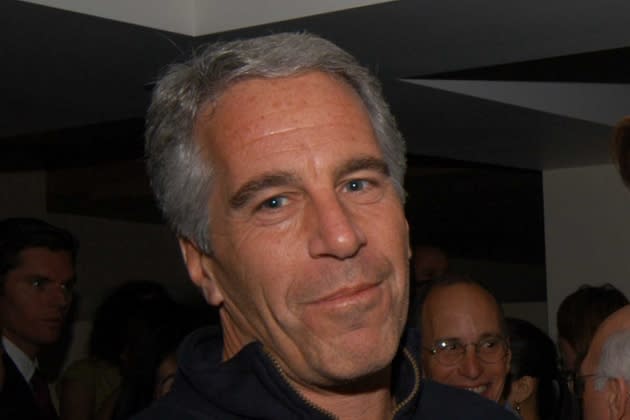Epstein Estate to Pay U.S. Virgin Islands Over $105 Million

Jeffrey Epstein’s estate has agreed to pay the U.S. Virgin Islands more than $105 million in cash to settle a lawsuit alleging the disgraced late financier used the territory as a base for trafficking of young women and children to his secluded private island, Reuters reports.
The settlement comes nearly three years after Denise N. George, the attorney general for the U.S. Virgin Islands, sued Epstein, whose August 2019 death was ruled a suicide.
More from Rolling Stone
CNN Accused of Using Hundreds of Songs Without Permission in New Lawsuit
Jan. 6 Rioter Stole a Police Officer's Hat, Then Tried to Sell It for $16
The settlement also includes half the proceeds from the sale of Little St. James, a private island where Epstein resided and allegedly conducted his sex trafficking operation. The sale could garner around $55 million, according to the New York Times.
Epstein’s estate also agreed to repay more than $80 million cash in tax benefits that one of his companies, Southern Trust Co, obtained fraudulently to fund his criminal activity.
“The coexecutors ultimately concluded that the settlement is in the best interests of the estate, including its creditors and claimants, to avoid the time, expense and inherent uncertainties of protracted litigation,” a lawyer for the estate, Daniel Weiner, said in an email to the New York Times.
The lawsuit settlement broadens the scope of Epstein’s alleged wrongdoing and marks the first brought by a government. Other jurisdictions where he owned property, such as New Mexico, Florida or New York, may follow suit. The U.S. Virgin Islands’ lawsuit alleged that Epstein lured girls as young as 13 into a human trafficking operation, after promising them money for school, health care, or to take care of their families. The lawsuit also claimed that Epstein and his associates flew the young women and girls to the U.S. Virgin Islands via private plane, and forced them to engage in sexual acts by confiscating their passports, controlling their communication, and threatening violence.
In June, Ghislaine Maxwell, an associate of Epstein, was sentenced to 20 years in prison for helping him recruit, groom, and abuse girls. She was convicted of sex trafficking, conspiracy, and transportation of a minor with the intent to engage in illegal sexual activity.
In late November, two women who accused Epstein of sexual abuse sued JP Morgan and Deutsche Bank, claiming the institutions provided a “necessary legitimate appearance” as they enabled the financier’s sex-trafficking enterprise.
Epstein’s alleged acts were in violation of the Virgin Islands Uniform Prevention of and Remedies for Human Trafficking Act, and the Virgin Islands’ Criminally Influenced and Corrupt Organizations Acts (CICO), both of which allow the government of the Virgin Islands to acquire assets, impose civil penalties, and seek damages for any crimes committed.
“This administration wants to speak with a voice that is loud and clear that human trafficking and sex crimes will not be tolerated in the Virgin Islands,” George told Rolling Stone in a statement when the lawsuit was first filed. “We seek to take back the Islands that became a safe haven for the unconscionable conduct alleged in our complaint. And we seek to hold accountable those who broke these laws, and to make clear our intention to enforce our laws.”
Best of Rolling Stone
